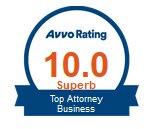Best Workers Compensation Lawyers in Minnesota
Share your needs with us, get contacted by law firms.
Free. Takes 2 min.
Or refine your search by selecting a city:
List of the best lawyers in Minnesota, United States
About Workers Compensation Law in Minnesota, United States
Workers compensation in Minnesota is a system designed to protect employees who are injured or become ill as a direct result of their job. The purpose of the law is to provide wage replacement, medical benefits, and rehabilitation to affected workers. In exchange, employees relinquish their right to sue their employer for negligence regarding workplace injuries. All Minnesota employers are required to carry workers compensation insurance or be self-insured, which ensures that most employees are covered from their very first day of work.
Why You May Need a Lawyer
While many workers compensation claims in Minnesota proceed smoothly, there are situations where legal representation can make a significant difference. You may need a lawyer if your claim is denied, if you believe your benefits are insufficient, or if there is a dispute regarding the extent of your injury or your ability to return to work. Legal assistance is also crucial if your employer retaliates against you for filing a claim, if you face problems obtaining necessary medical care, or if your injury involves a third party. An experienced workers compensation attorney can help protect your rights, ensure the correct benefits are paid, and guide you through complex appeals processes.
Local Laws Overview
Minnesota workers compensation laws are enforced by the Minnesota Department of Labor and Industry (DLI). Key aspects of Minnesota’s system include:
- Most employees are covered starting their first day of work.
- Benefits include medical care, wage loss for temporary and permanent disability, vocational rehabilitation, and, in fatal cases, dependency and burial benefits.
- Workers have strict deadlines for reporting injuries - generally within 14 days of the incident, though reporting up to 180 days may still allow for a claim under certain circumstances.
- Employers are prohibited from retaliating against employees for filing claims.
- Disputes are addressed by the DLI and, if necessary, through the Office of Administrative Hearings or Minnesota courts.
- Compensation is typically paid regardless of who was at fault for the injury, with limited exceptions for purposeful self-harm, intoxication, or assaults for personal reasons unrelated to work.
Frequently Asked Questions
What injuries or illnesses are covered under Minnesota workers compensation?
Covered injuries include those that occur as a direct result of work duties, including repetitive stress injuries, occupational illnesses, and acute injuries resulting from accidents that happen on the job.
What benefits can I receive if I am injured at work?
Benefits may include payment of medical expenses, wage loss compensation for temporary or permanent disability, vocational rehabilitation services, and dependency benefits if a worker dies due to a work-related incident.
How long do I have to report a work injury in Minnesota?
You should report your injury to your employer as soon as possible, ideally within 14 days. However, you may have up to 180 days to report in certain circumstances, but delays could affect the outcome of your claim.
What happens if my workers compensation claim is denied?
If your claim is denied, you have the right to dispute the decision through the Minnesota Department of Labor and Industry or, if necessary, through the Office of Administrative Hearings.
Can I see my own doctor for a workers compensation injury?
Initially, you may choose your own doctor. However, in some cases, your employer or insurer may require you to see a designated health care provider after your first visit.
Will I receive my full wage if I cannot work due to a work injury?
Generally, you will receive a percentage of your average weekly wage, not your full wage. The exact percentage depends on the type and severity of your disability.
What if my employer does not have workers compensation insurance?
Minnesota law requires most employers to carry insurance. If your employer is uninsured, you can still seek benefits through the Minnesota Special Compensation Fund.
Can my employer fire me for filing a workers compensation claim?
No. It is illegal for an employer to terminate or retaliate against an employee for seeking workers compensation benefits.
Do I need a lawyer to file a workers compensation claim?
You are not required to have a lawyer, but having legal representation can be beneficial, especially if your claim is disputed, denied, or involves complex circumstances.
How are workers compensation attorneys paid in Minnesota?
Most workers compensation attorneys work on a contingency fee basis, meaning they are paid a percentage of the recovered benefits only if they win your case. The fee structure is regulated by state law.
Additional Resources
There are several organizations and governmental bodies in Minnesota that provide resources and assistance for workers compensation matters, including:
- Minnesota Department of Labor and Industry (DLI) - Offers information for both employees and employers on claims, benefits, and dispute resolution.
- Minnesota Workers Compensation Court of Appeals - Handles appeals of disputed claims.
- Office of Administrative Hearings - Conducts hearings for contested cases.
- Legal Aid Societies and Bar Association Referral Services - Provide free or low-cost legal assistance for qualified individuals.
Next Steps
If you have been injured at work or have questions about workers compensation in Minnesota, consider taking the following steps:
- Report your injury to your employer as soon as possible, and document all communications and medical care related to your injury.
- Seek necessary medical treatment and keep copies of all medical records and bills.
- File a workers compensation claim with your employer’s insurance carrier.
- If your claim is denied or you encounter resistance from your employer or insurer, consult with a qualified workers compensation attorney.
- Take advantage of free resources provided by the Minnesota Department of Labor and Industry and other support organizations for assistance and more information.
Taking prompt and informed action will help protect your right to benefits and ensure you receive the support you are entitled to under Minnesota law.
Lawzana helps you find the best lawyers and law firms in Minnesota through a curated and pre-screened list of qualified legal professionals. Our platform offers rankings and detailed profiles of attorneys and law firms, allowing you to compare based on practice areas, including Workers Compensation, experience, and client feedback.
Each profile includes a description of the firm's areas of practice, client reviews, team members and partners, year of establishment, spoken languages, office locations, contact information, social media presence, and any published articles or resources. Most firms on our platform speak English and are experienced in both local and international legal matters.
Get a quote from top-rated law firms in Minnesota, United States — quickly, securely, and without unnecessary hassle.
Disclaimer:
The information provided on this page is for general informational purposes only and does not constitute legal advice. While we strive to ensure the accuracy and relevance of the content, legal information may change over time, and interpretations of the law can vary. You should always consult with a qualified legal professional for advice specific to your situation.
We disclaim all liability for actions taken or not taken based on the content of this page. If you believe any information is incorrect or outdated, please contact us, and we will review and update it where appropriate.
Browse workers compensation law firms by city in Minnesota
Refine your search by selecting a city.









